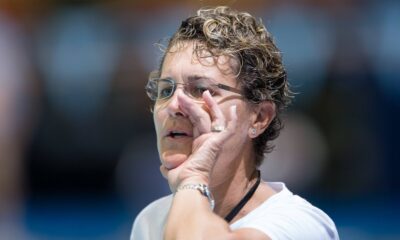
The college was Maryland’s only female-only undergraduate institution and the first Catholic college in the United States to offer a four-year degree to women, according to the Associated Press. The institution established a weekend college for adult undergraduates open to men in 1975 and has offered coeducational graduate programs since 1984.
On Monday, the university board unanimously voted to move to coeducation after reviewing data on enrollment trends and high school graduation rates at women’s colleges. “The University of Notre Dame has had a history of innovation since its inception, so we know we need to continue to innovate,” said university president Maril Yam.
According to the school, data shows that less than 2% of girls enroll in private, non-profit women’s colleges.
The university had about 2,200 students, including about 800 undergraduates, in the fall of 2021, according to federal data.
The transition to coeducation was previously discussed in public forums in 2004 and 2007, but no decision was made until this year.
Only voting members of the board attended Monday’s meeting, and the work of the registration task force studying the issue was confidential, the university said.
Board faculty and staff representative Mark Fenster and student representative Alicia Hancock (a non-voting member) joined other campus members on Tuesday afternoon, unaware that a vote was taking place. He said he learned of the news to
Fenster said faculty members were shaken by the decision-making process. “There was no consulting, no transparency,” he said.
Fenster noted that enrollment at women’s colleges has been plummeting for some time. The institution has grown with coeducational graduate programs including pharmacy, nursing, and education, but believes it has room for expansion at the undergraduate level.
“I don’t think they’ll get many men on campus, but I don’t think that’s why,” Fenster said. “The rationale was to make the program more attractive to women by allowing men.
The university plans to encourage bringing men to its current women-only campus by promoting small class sizes, NCAA Division III athletics, and proximity to downtown Baltimore.
After the decision, many professors canceled classes at the Baltimore-based university campus, according to student organizers Hancock and Alexandria Malinowski.
Sophomore Aniyah Plumer was looking specifically for a women’s college. After she attended her Catholic High School in Little Her Flower in Philadelphia, Plummer emphasized education in an all-female environment.
“The transition to a coeducational setting is sad,” Plummer said. “After reaching her 125th year as an institution educating women, it felt like a betrayal to find out that we were ‘blessing’ by allowing men to enter college. ”
Kamiya Britton, a class of 2022, believes the decision to go co-ed will change conversations on campus and make women less comfortable.
“Women come to Notre Dame to be part of a women’s community that embraces women and their unique qualities,” Britton said.
To address student concerns and questions about the Board’s decisions, Yam held two student listening sessions on Thursday and Friday. During Thursday’s session, several students wore blue tape over their mouths and masks to symbolize that they felt they were not being heard when decisions were made.
Hancock and Malinowski hosted a quiet sit-in outside Yam’s office on Friday to protest the decision.
“I felt bad, to be honest,” Hancock said. “Our voices were not taken into account.”
After the announcement, college graduates were also given the chance to speak with Yam. However, some say they are still upset that no insight was given before the decision was finalized.
2019 graduate Caroline Maile O’Donnell said, “President Yam and the board have long been known among members of our community for their lack of transparency, but this week’s Cloak & Dagger Decisions are the new low.
Patricia McGuire, president of Trinity Washington University in Washington, said the school and other women’s colleges want to reach out to historically underserved women and participate in various programs without losing their mission of empowering women. Said it aims to serve some men.
“It’s about reorienting and transforming to serve new and different people in new and different ways,” McGuire said.















